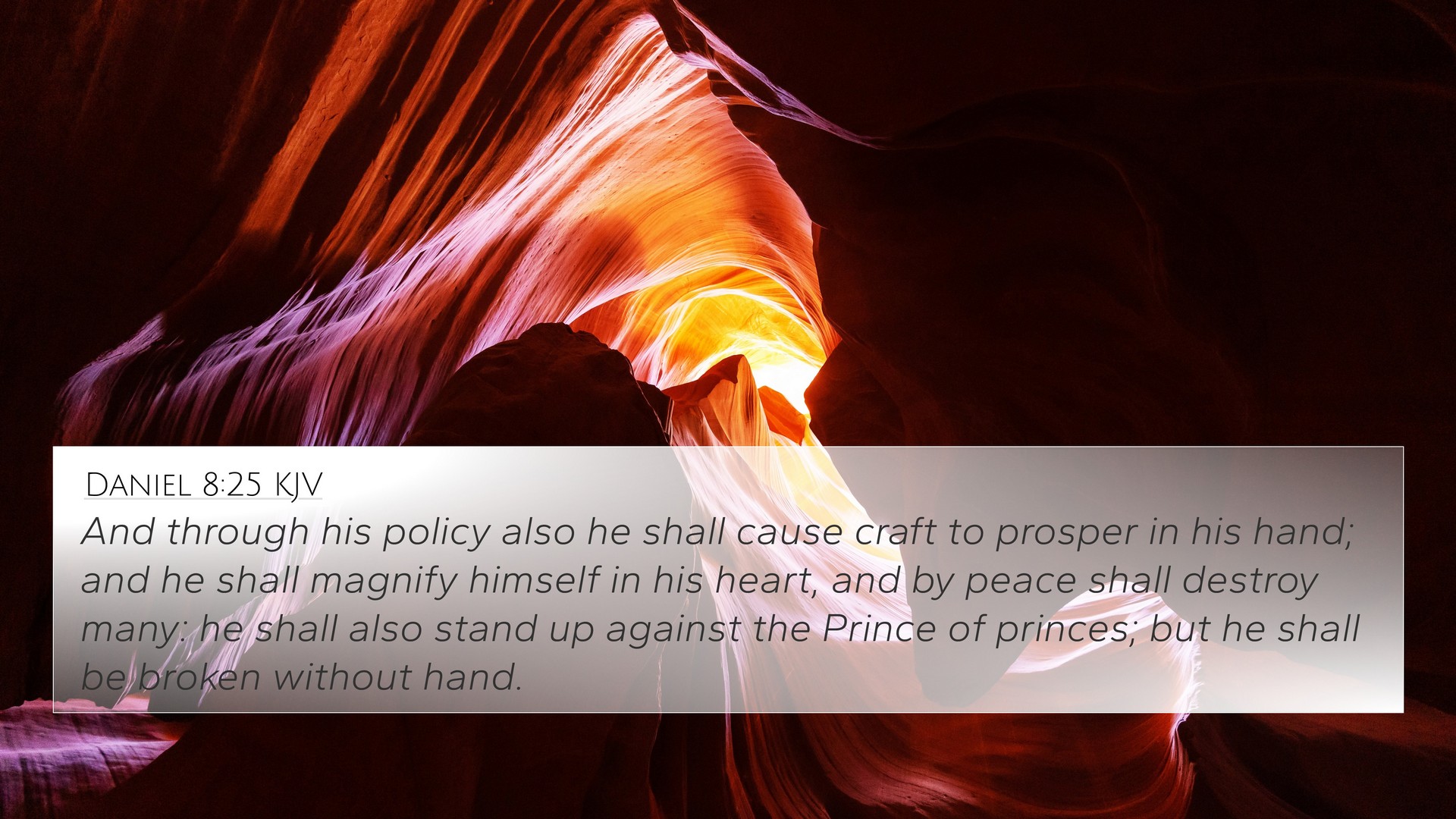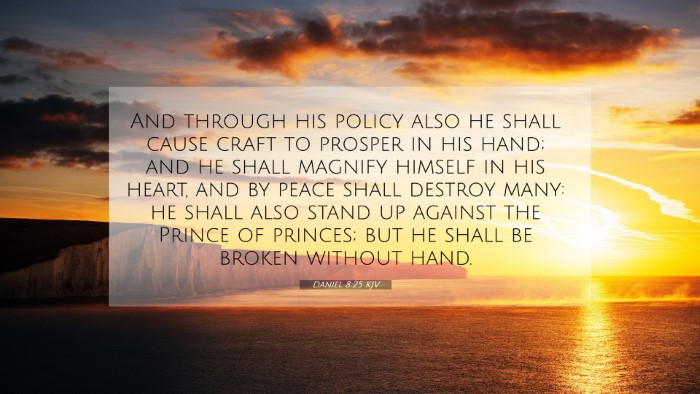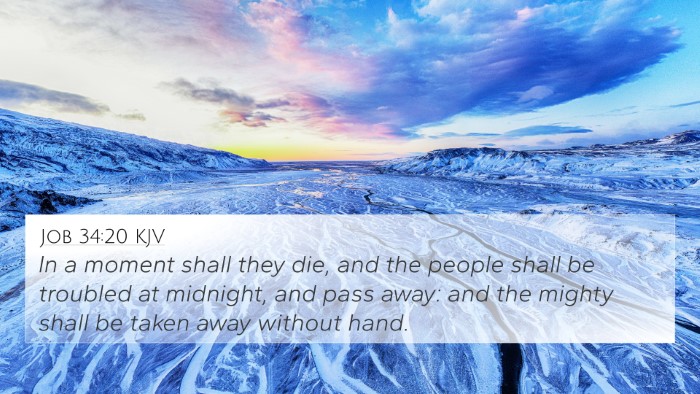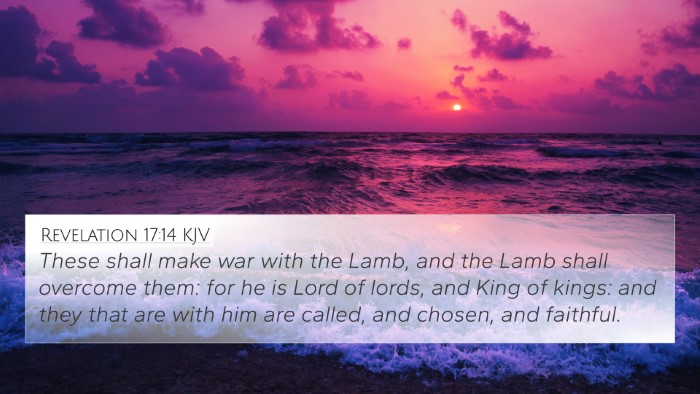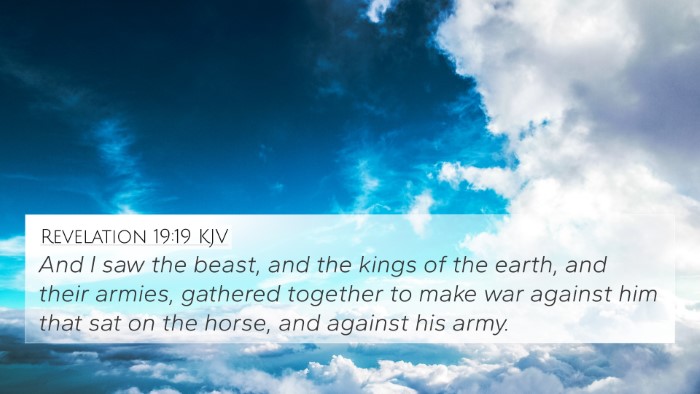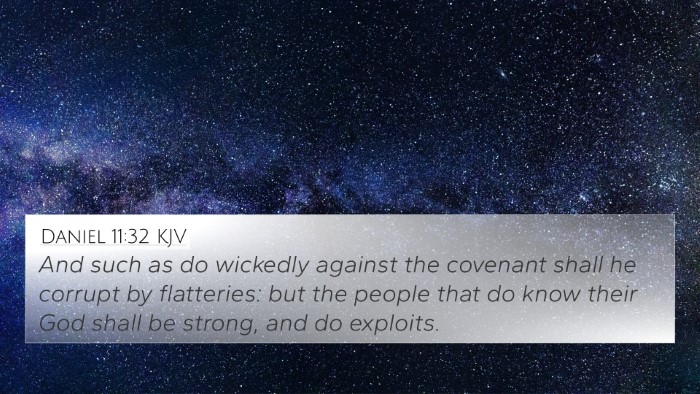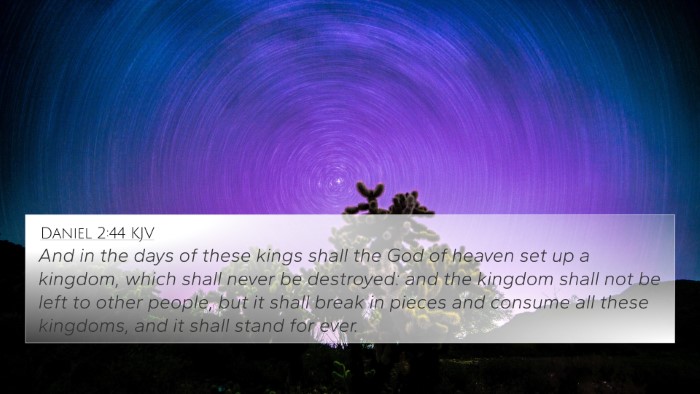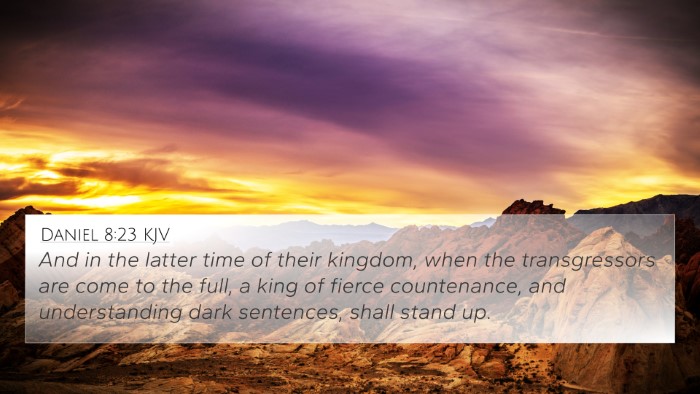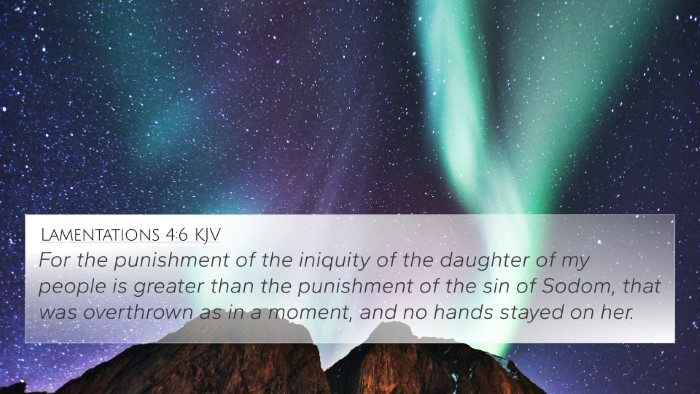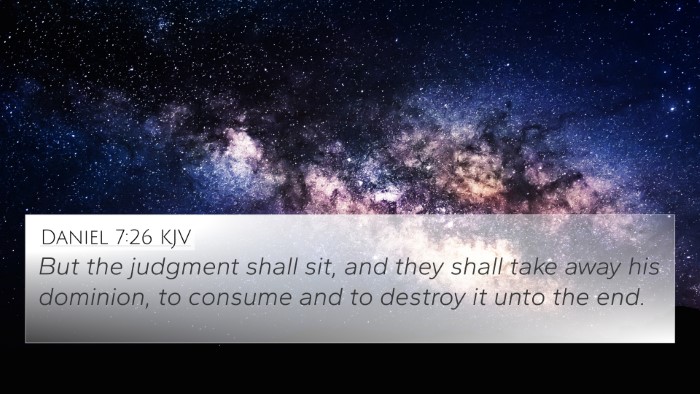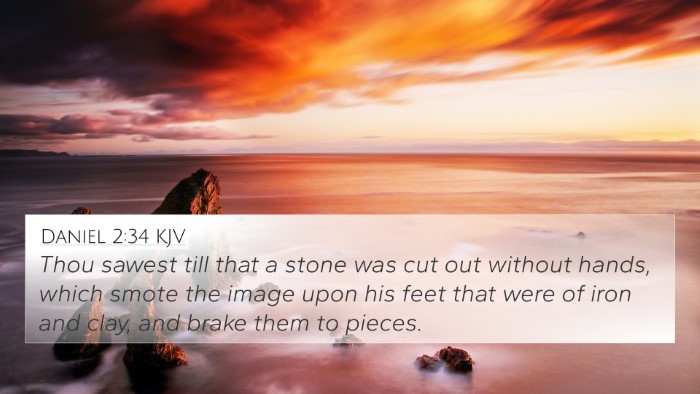Understanding Daniel 8:25
Daniel 8:25 states:
"And through his cunning he shall cause deceit to prosper under his hand; and he shall magnify himself in his heart, and by peace shall destroy many: he shall also stand up against the Prince of princes; but he shall be broken without hand."
This verse primarily discusses the character and actions of a significant figure often interpreted as a representation of evil, and it provides prophetic insight into his eventual downfall. Here we will delve into the various interpretations and insights drawn from public domain commentaries.
Key Themes and Interpretations
- The Cunning Nature of Evil:
Matthew Henry highlights the deceitful tactics of this figure, showcasing that cunning often leads to temporary success but ultimately results in destruction.
- Peace as a Tool for Deceit:
Albert Barnes notes that this figure gains power not through overt conflict but through a false sense of peace. This reflects how evil can masquerade as benevolence.
- Self-Magnification:
Adam Clarke emphasizes the pride and ambition of this figure, who elevates himself in his heart, showcasing a common trait of those who oppose divine authority.
- Opposition to God:
The phrase "stand up against the Prince of princes" is critical, as both Henry and Clarke discuss this as a reference to Christ, indicating the ultimate confrontation between good and evil.
- Divine Judgment:
The conclusion of the verse, "he shall be broken without hand," suggests that this downfall is initiated by divine intervention rather than human action, underscoring God's sovereignty over history.
Cross-References for Deeper Understanding
To appreciate the full meaning of Daniel 8:25, several Bible verses offer thematic connections and insights:
- Revelation 13:5-7: Discusses the power and blasphemy of a beast, paralleling the cunning described in Daniel.
- 2 Thessalonians 2:4: Identifies a figure who opposes and exalts himself above all that is called God, linking to the self-magnification in our primary verse.
- Isaiah 14:12-15: Reflects on the fall of Babylon, which can symbolize arrogance and ultimate downfall.
- Matthew 24:24: Warns of false prophets and Christ, emphasizing the cunning nature of deceit during the end times.
- Zechariah 11:16: Speaks of a shepherd who does not care for the flock, connecting with themes of deceit and false leadership.
- Psalms 2:1-4: Illustrates the futility of opposition against God, reminiscent of the figure in Daniel.
- Philippians 2:10-11: Displays the ultimate authority of Christ over all powers, reinforcing the "Prince of princes" theme.
Conclusions and Reflections
In summary, Daniel 8:25 serves as a profound reminder of the nature of evil and its eventual demise at the hands of a Sovereign God. The cross-references provide a deeper narrative and thematic connections across the scriptures, enabling a richer understanding of biblical prophecy.
Using Bible Cross-References Effectively
For those interested in exploring Bible verse cross-references, there are tools available such as a Bible concordance, which can assist in finding links between various scripture passages. Engaging in Cross-reference Bible study helps believers understand the wider context of theological themes and assures that their interpretations are rooted in a broader biblical foundation.
Final Thoughts
As we wrap up our discussion on Daniel 8:25, it becomes evident that the study of scripture is enriched through the practice of cross-referencing Biblical texts. Not only does it create a comprehensive view of biblical themes, but it also provides a structured approach to interpreting scripture accurately. Engaging in this study opens pathways for inter-Biblical dialogue that enhances our spiritual journey.
